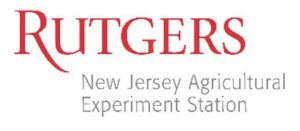The NJDA is offering USDA Resilient Food Systems Infrastructure Program Grants. The deadline for grant submissions is February 29th. For more information visit the NJDA grant site: Department of Agriculture | Resilient Food Systems Infrastructure Program Grants.
Types of projects that could be funded include:
• Expanding processing capacities, including adding product types, increasing production volumes, and supporting new wholesale/retail, product lines;
• Modernizing equipment or facilities through upgrades, repairs, or retooling; (e.g., adapting product lines for institutional procurement or adding parallel processing capacity);
• Purchase and installation of specialized equipment, such as processing components, sorting equipment, packing and labeling equipment, or delivery vehicles;
• Modernizing manufacturing, tracking, storage, and information technology systems;
• Enhancing worker safety through adoption of new technologies or investment in equipment or facility improvements; Construction of a new facility;
• Increasing packaging and labeling capacities that meet compliance requirements under applicable laws (e.g. sealing, bagging, boxing, labeling, conveying, and product moving equipment);
• Increasing storage space, including cold storage;
• Develop, customize, or install climate-smart equipment that reduces greenhouse gas emissions, increases efficiency in water use, improves air and/or water quality, and/or meets one or more of USDA’s climate action goals;
• Modernize equipment or facilities to ensure food safety, including associated Hazard, Analysis, and Critical Control Points (HACCP) consultation, plan development and employee training;
• Training on the use of all equipment purchased under the grant and associated new processes.
Contact at NJDA:
Deelip Mhaske
Grants Administrator
Division of Marketing & Development New
Jersey Department of Agriculture
PO Box 330, Trenton, NJ 08625-0330
Phone: 609-913-6628 Fax: 609-984-2508
E-mail: deelip.mhaske@ag.nj.gov


